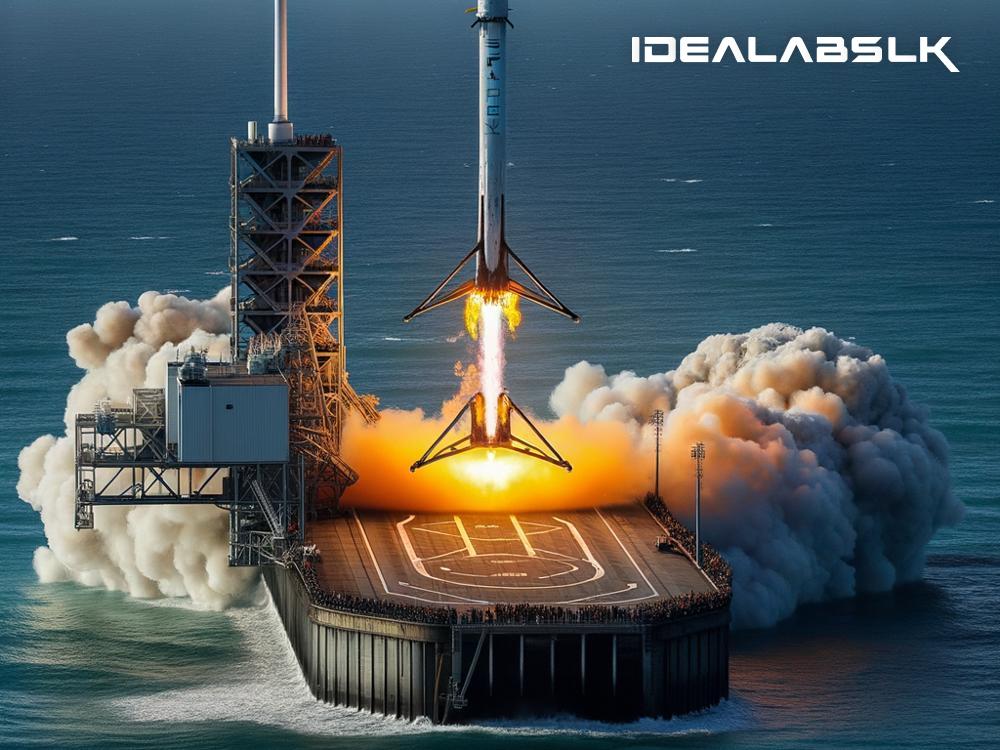How SpaceX's Reusable Rockets Are Revolutionizing Space Travel in 2024
In the grand tapestry of human achievement, space exploration shines as one of our most incredible accomplishments. From the first moon landing in 1969 to the deployment of countless satellites that power our modern world, the journey into space has always been a symbol of human ingenuity and curiosity. However, for the longest time, this journey was hindered by enormous costs, making it a playground for only the wealthiest of nations. But as we step into 2024, a new chapter in this cosmic voyage is being written, thanks to the groundbreaking work of SpaceX and its reusable rockets. Let's dive into how these technological marvels are not just reducing the cost of space travel but are also significantly advancing our quest to explore the final frontier.
The Rocket Recycling Revolution
Imagine if every time you flew on an airplane, the entire aircraft was thrown away after a single use. Sounds ludicrous, right? Well, that's how space travel worked until quite recently. Traditional rockets, towering symbols of human ambition, were used just once, leading to astronomical costs for every launch. SpaceX, led by visionary entrepreneur Elon Musk, sought to change this wasteful practice by introducing reusable rockets.
At the heart of this revolution is the Falcon 9, a marvel of engineering that has proven that rockets can be landed back on Earth and flown again. This breakthrough has been compared to the invention of the wheel in terms of its potential impact on our ability to explore space.
Slashing Costs and Opening Opportunities
The reuse of rockets is a game-changer for several reasons, the most immediate being the drastic reduction in the cost of launching into space. By reusing rockets, SpaceX has managed to save a significant portion of the cost of each launch, savings that can be passed on to clients looking to send satellites into orbit, resupply the International Space Station, or even venture further into the cosmos.
These cost reductions are opening up space to a host of new players, including smaller nations and private companies, thus democratizing access to space in a way that was unthinkable just a decade ago. It's not just about putting satellites into orbit more affordably; it's about enabling scientific missions that can enhance our understanding of Earth and the universe, supporting the deployment of global broadband internet, and even paving the way for commercial space travel and tourism.
Accelerating the Pace of Exploration
Beyond cost, the ability to reuse rockets has a profound impact on the speed of space exploration. In the past, the construction and testing of a new rocket for every launch meant long lead times between missions. With reusable rockets, SpaceX has significantly shortened this turnaround time, showcasing their ability to launch, land, refurbish, and relaunch rockets in increasingly short cycles.
This rapid pace has substantial implications for space exploration. For scientists and researchers, it means more frequent opportunities to send experiments and instruments into space, gathering valuable data at a pace that was previously unimaginable. For the broader dream of expanding human presence beyond Earth, it brings us closer to the reality of regular missions to the Moon, Mars, and beyond.
Looking Ahead: The Starship and Mars
As we marvel at the achievements of reusable rockets in reducing costs and accelerating space exploration, it's clear that we're on the brink of even more exciting developments. SpaceX's next-generation spacecraft, named Starship, is currently in the testing phase and promises to be the most powerful rocket ever built. Designed with full reusability in mind, Starship aims to carry humans to the Moon, Mars, and potentially beyond.
The implications of Starship's success are monumental. It represents not just another step in reducing the cost of space travel, but a giant leap toward making human life multi-planetary, a vision that SpaceX is determined to realize within our lifetimes.
In Conclusion
The reusable rocket revolution spearheaded by SpaceX in 2024 is much more than a technological achievement; it's a key that is unlocking the vast potential of space for humanity. By making space travel more affordable and frequent, we're not only advancing scientific knowledge and technological innovation but also taking concrete steps toward a future where the wonders of the cosmos are within reach of more people than ever before.
As we stand on this threshold, it's thrilling to ponder what discoveries and adventures await us in the stars. Thanks to the ingenuity and perseverance of those pushing the boundaries of space exploration, the final frontier seems a little less distant today.

